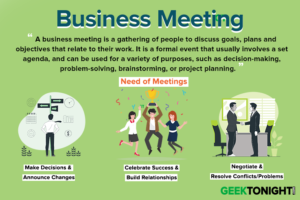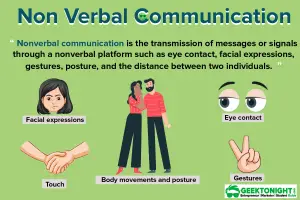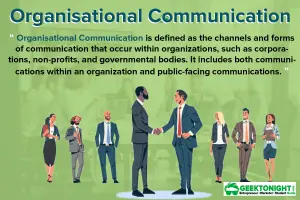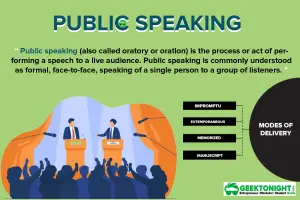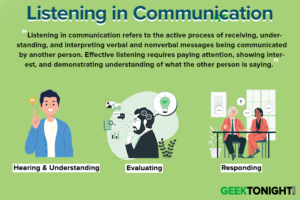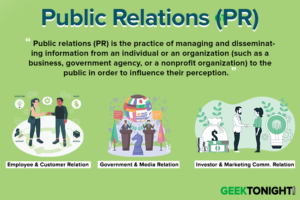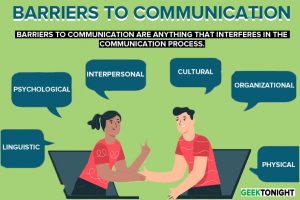What is Negotiation?
Negotiation is a process by which parties with different preferences and interests attempt to agree on a common solution. Negotiation is a communication process that helps to manage all types of conflicts in an effective and mutually satisfying manner.
In this process, parties are committed to achieve peaceful results of dispute resolution. Negotiation brings negotiating parties together to arrive at a solution which is accepted by both parties.
Table of Content
Negotiation is a compromising approach to resolve conflicts where in focus is laid on changing the behaviour of negotiating parties to reach an agreement. It is important to know that the terms, ‘negotiation’ and ‘bargaining’ are often used interchangeably, but bargaining in business is related to price only.
Negotiation can be termed as a conflict-resolution process used in situations where interests of two or more parties clash with each other and no party wants to sacrifice for the other. Negotiation tries to bring a win-win situation for all the parties involved in it.
If parties are willing to solve a problem mutually, then negotiation can be a tool for conflict resolution. In addition, negotiating parties should opt for a diplomatic approach to address the conflict. However, the success of negotiation depends on various factors such as relationship between parties, prevailing situation and personality traits of individuals involved in the conflict.
Negotiation as a tool of conflict resolution would prove effective only if the conflicting parties are willing to resolve the problem mutually. Negotiation is essential to:
- identify the conflict of interest between two or more parties
- follow an unbiased set of rules and procedures to resolve the conflict
- try to reach a mutual agreement
According to Robbins, negotiation is a process in which two or more parties exchange goods or services and attempt to agree on the exchange rate for them.
According to Rubin and Brown (1975), negotiation refers to a process in which individuals work together to formulate agreements about the issues in dispute. This process assumes that the parties involved are willing to communicate and to generate offers, counteroffers, or both. An agreement occurs if and only if the offers made are accepted by both of the parties.
According to Kavita Singh, negotiation is a process by which two or more parties each with its own goals & perspectives coordinate areas of interest through concessions and compromise to reach an agreement and take a joint decision about areas of common concern in a situation in which neither side has nor wants to use power.
Importance of Negotiation
In business communication, negotiation is pivotal to prevent conflicts The negotiation process follows a step-by-step approach to bring together two or more parties involved in a conflict and discuss their problems. and look for alternatives that cater to everyone’s needs. It entails a trade-off on certain things/aspects that results in mutual benefits to entities involved.
In the context of business communication, negotiation is important as it serves as the cornerstone of both the casual routine communication and the formal interaction such as negotiating terms and conditions of sale, lease, service delivery and other legal contract agreement.
Good negotiation also helps in achieving a long-lasting solution rather than haphazard short-lived solutions that do not fulfil the requirements of either party. Even in business negotiations, the good impression left by a person on the other party continues to have a positive impact on the future meetings between them.
Negotiation Process
As mentioned earlier, negotiation is a way by which people settle disputes. It is a process through which a compromise or agreement is reached while avoiding argument and dispute.
The process of negotiation involves certain steps which are explained as follows:
- Preparing and planning
- Defining ground rules
- Offering clarification and justification
- Bargaining and problem solving
- Closure and implementation
Preparing and planning
It is the first stage of the negotiation process that is related with preparing parties for negotiation in case of conflicts. It is ensured that all required information is available before starting the negotiation process. For example, what kind of conflict is it? Which parties are involved? What has already been done to resolve the matter? What do parties think about each other?
Defining ground rules
In the next stage of the negotiation process, the rules are clearly defined. Certain questions are considered while defining the ground rules. These questions can be: Where will negotiations take place? Who will be the negotiator? Who will start the negotiation first? What happens if there is no agreement?
Offering clarification and justification
In this stage of negotiation, both the parties get the chance to clarify and justify their original demands. At this stage, parties discuss their views regarding the conflict and justify the reasons for their demands.
Bargaining and problem solving
At this stage, parties make and manage their concessions in bargaining. This stage is the heart of the negotiation process in which parties claim value for themselves by maximising their interest. Having clarity of objectives is of utmost importance.
Closure and implementation
This is the final stage of negotiation wherein both the parties reach at an agreed conclusion and the process of negotiation comes to an end.
Learning Effective Negotiation Skills
Negotiation skills are paramount to sort out any differences that emerge between different people in a business environment. An effective negotiator trusts his/her communication calibre to carry out negotiations seamlessly and amicably. Effective negotiation skills are one of the most sought after skills demanded by organisations.
The following are some of the negotiation skills that should be learned:
- Active listening
- Effective communication
- Problem solving
- Collaboration
- Fogging
- Rapport building
- Persuasion
- Empathy
Active listening
An active listener will refrain from reacting impulsively to a conflicting situation. It is important to actively listen to the parties involved to find the scope of compromise. Instead of spending the majority of the time in explaining personal viewpoint, a skilled negotiator will devote more time paying heed to the other party.
Effective communication
Good negotiators should have a calibre to communicate lucidly and effectively to the other party. Misapprehensions can surface if the negotiator does not state viewpoints or words clearly. During a bargaining meeting, an effective negotiator should have the skills to reach a favourable outcome along with proper reasoning.
Problem solving
A good negotiator has an ability to provide an array of solutions to problems. Instead of jumping to a conclusion of negotiation, an ideal negotiator will aim to find the root cause of the problem and solve it. Sometimes, a problem can be a gap in communication or misconception about something. Finding and solving the problem will be in the best interest of the opposing sides.
Collaboration
Effective negotiators must work collaboratively as a team and develop a cooperative atmosphere for positive negotiation. Negotiators need to promote an environment of teamwork so that the entities involved reach a consensus.
Fogging
It is an instrumental technique utilised to calm a potentially aggressive or flaring situation and prevent the situation from aggravating further. When a person makes a hostile comment, it is expected that an equally aggressive response will come.
However, when a person does not reply in the same vein and responds in a calm manner, a tense situation can be eased. Thus, fogging enables the negotiator to prevent the situation from getting out of hand and discuss the issue amicably.
Rapport building
Potent negotiators must possess interpersonal skills to build a rapport with those engaged in the negotiation. Negotiators with equanimity and the skill to influence others can create a positive atmosphere especially during a tense situation.
Persuasion
An integral aspect of being an effective negotiator is to persuade and influence other parties. Proper persuasion can help define why the proposed solution is beneficial to the parties and motivate others to support the solution.
Empathy
An effective negotiator understands the other party and responds to them rather than just expressing his own ideas. Empathy refers to put oneself in other’s situation and then imagine the situation that the person is going through. It is the competency to comprehend the emotional state of mind of others and deal with it accordingly.
Benefits of Effective Negotiation
Negotiation implies a process in which two or more parties with varied aspirations and goals discuss a conflicting issue to reach an agreeable acceptable solution. Negotiation is regarded as a modern way of settling disputes.
Good negotiation contributes immensely in the success of an organisation or a person’s profession as it ensures harmonious relationships between parties, offers lasting viable solutions and prevents a problem or conflict to surface again.
Negotiating can be deemed as a give and take process. Negotiation strives to form a peaceful and constructive interaction that is a win-win solution for all the parties involved. Ideally, a successful negotiation is one in which the parties involved make concessions and reach a harmonious conclusion.
Strategic Model for Negotiation
Although there are many models for the negotiating process, one of the most well-known and widely-used strategic model is the RADPAC model. As per this model, negotiations must be done in a structured way and must come to an end with a reasonable conclusion, where each party is satisfied with the result.
The RADPAC model of negotiation are explained as follows:
Rapport
At the beginning of negotiations, it is crucial that the entities involved share a good rapport with each other and are comfortable to interact. The parties involved can familiarise themselves with each other, create positive impressions and try to seek an understanding.
Analysis
At this development stage, parties involved take time to understand each other’s needs and areas of interests. At this stage, negotiators are supposed to:
- Analyse needs and interests
- Form a proper understanding
- Garner facts
- Exchange opinions
- Share interests or feelings
Debate
At this stage, parties discuss their issues or reasons of friction. Subsequently, various possible solutions are put forth, and their benefits and drawbacks are evaluated. The aim of having a debate is to gain concurrence of parties.
Propose
At this stage, out of the various solutions shared in the previous stage, the best one is proposed. The best solution is the one in which both the parties can retain their highest priorities and forego a few less essential aspects in an attempt to arrive at a consensus. Those involved in the negotiation process try their level best to come up with the best possible solution and reach an agreed conclusion.
Agreement
At this stage, a consensus is formed through voting (done by participants of the negotiation deal) regarding which solution to choose and implement. Each participant casts his vote for the best probable idea or alternative.
Close
This is the final stage of the RADPAC model, the negotiation comes to an end and the parties involved return back satisfied. The results are summarised, discussed and succeeding implementation steps are planned.
Negotiation Strategies
Negotiation is the process through which conflicting parties define what they are willing to give and accept in exchange. For this, there are two types of bargaining strategies that are adopted. These two strategies are explained as follows:
Distributive negotiation
In this bargaining strategy, one party’s gain is dependent upon the other party’s loss. It is a type of competitive bargaining strategy, which is used to distribute fixed resources among conflicting parties. These resources may include money, properties, assets, etc. As the assets or resources to be distributed are fixed in such cases, distributive negotiation is also known as the zero-sum negotiation.
Integrative negotiation
In this bargaining strategy, parties strive to find a win-win solution in which both the parties are mutually benefited. Solutions are put forward and instituted by offering the maximum benefit to both the parties involved.
For instance, a vendor dealing in furniture says the lowest price for five chairs is ₹5000 to a customer, but the customer asked the vendor to sell them at the worth of ₹4000. The customer convinced the vendor to lower the price of chairs to ₹4500. Therefore, both the parties compromise by giving up their original ask to make a win-win deal.
In addition to negotiation, the organisation uses several approaches to conflict resolution. When the parties are not able to resolve the issue among themselves, they may seek third-party intervention to reach a solution.
The third-party can be a manager, a much-respected colleague or an arbitrator whose role is to resolve conflicts. Various third-party interventions are as follows:
Mediator
A mediator is a neutral third party that offers a solution in a timely, fair and cost-effective manner. A mediator’s role entails maintaining a degree of high control over the process but not the outcome.
A mediator interacts with the parties separately and then tries to help them reach a solution either by bringing them together for talks or exchanging a message on behalf of parties during negotiations. Mediators are generally involved in the negotiation process when direct negotiations are failed, complex in nature, which may lead to an increase in disputes or when multiple parties are involved.
Arbitrator
An arbitrator is a third party with the authority to dictate an agreement. An arbitrator may have less control over the negotiation process, however, he has more control over its outcome. An arbitrator allows each party to furnish facts or arguments and then decide on the outcome
Arbitration can be voluntary or compulsory. An arbitrator is appointed in case of adversarial dispute so as to avoid a lengthy and expensive court procedure.
Consultant
A consultant is a skilled and a neutral third-party negotiator who attempts to facilitate problem solving through communication and analysis. A consultant has thorough knowledge and experience in managing conflicts.
Conciliator
A conciliator is a trusted third-party negotiator whose role is to form an informal communication link between negotiating parties. Conciliation is extensively used in international labour, family and community disputes. A conciliator’s role is to look for fact-finding, interpret messages of parties and persuade parties to reach a mutual agreement.
The representatives of the parties brought for consultation with the conciliator try to reduce the differences or concerns of both parties. The conciliator can be an individual or a group with whom both the parties agree to share their concerns. There is no legal standing, and the conciliator usually has no right to seek evidence or call witnesses. Its main goal is to conciliate, mostly by seeking concessions.
Integrity and Ethics in Negotiation
Integrity and ethics are of prime importance in the prevailing business environment. Integrity and ethics in negotiation pertains to abstaining from making fraudulent misrepresentations. In the business context, negotiations should be carried out with integrity and ethics for establishing long-term relations with clients and customers.
Integrity and ethics in negotiation means that organisations should explicitly state all terms and conditions while dealing with clients, and no information should remain unclear. Most essentially, integrity and ethics in negotiation revolves around being prepared to do what is morally correct, even if it may not be profitable at the moment.
A considerable number of people have ingrained ethics or a set of moral values in their daily personal and professional lives. Our sense of right and wrong should align with fundamental rights such as the right to life, the right to safety and the right to privacy.
Integrity and ethics are not always in accordance to what society thinks correct or what is legal. It is possible to follow the law in letter and spirit and still be unethical. For example, some decades ago, in many parts of the world, slavery was legal but still it was unethical. Hence, when parties commence a negotiation to settle a dispute or clash of interest, it is pertinent to maintain integrity and ethics.
Business Communication Notes
(Click on Topic to Read)
- What is Business Communication?
- What is Communication?
- Types of Communication
- 7 C of Communication
- Barriers To Business Communication
- Oral Communication
- Types Of Non Verbal Communication
- What is Written Communication?
- What are Soft Skills?
- Interpersonal vs Intrapersonal communication
- Barriers to Communication
- Importance of Communication Skills
- Listening in Communication
- Causes of Miscommunication
- What is Johari Window?
- What is Presentation?
- Communication Styles
- Channels of Communication
- Hofstede’s Dimensions of Cultural Differences and Benett’s Stages of Intercultural Sensitivity
- Organisational Communication
- Horizontal Communication
- Grapevine Communication
- Downward Communication
- Verbal Communication Skills
- Upward Communication
- Flow of Communication
- What is Emotional Intelligence?
- What is Public Speaking?
- Upward vs Downward Communication
- Internal vs External Communication
- What is Group Discussion?
- What is Interview?
- What is Negotiation?
- What is Digital Communication?
- What is Letter Writing?
- Resume and Covering Letter
- What is Report Writing?
- What is Business Meeting?
- What is Public Relations?
Business Communication Notes
(Click on Topic to Read)
- What is Business Communication?
- What is Communication?
- Types of Communication
- 7 C of Communication
- Barriers To Business Communication
- Oral Communication
- Types Of Non Verbal Communication
- What is Written Communication?
- What are Soft Skills?
- Interpersonal vs Intrapersonal communication
- Barriers to Communication
- Importance of Communication Skills
- Listening in Communication
- Causes of Miscommunication
- What is Johari Window?
- What is Presentation?
- Communication Styles
- Channels of Communication
- Hofstede’s Dimensions of Cultural Differences and Benett’s Stages of Intercultural Sensitivity
- Organisational Communication
- Horizontal Communication
- Grapevine Communication
- Downward Communication
- Verbal Communication Skills
- Upward Communication
- Flow of Communication
- What is Emotional Intelligence?
- What is Public Speaking?
- Upward vs Downward Communication
- Internal vs External Communication
- What is Group Discussion?
- What is Interview?
- What is Negotiation?
- What is Digital Communication?
- What is Letter Writing?
- Resume and Covering Letter
- What is Report Writing?
- What is Business Meeting?
- What is Public Relations?


